Sustainability Fellows span a wide range of disciplines and areas of expertise from architecture to poetry, and civil engineering to medicine. Meet some of the current fellows, and discover how they are pushing the boundaries of sustainability curriculum by learning about their Interdisciplinary Education projects.
PROJECT: SUSTAINABILITY ACROSS FIRST-YEAR CORE CURRICULUM: THE LAND ONE EXPERIENCE
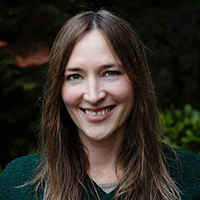 LINDSAY CUFF
LINDSAY CUFF
Applied Biology, Faculty of Land and Food Systems, and Forest Conservation Sciences, Faculty of Forestry
Dr. Cuff is working with Dr. Athena McKown (Forest and Conservation Sciences, Faculty of Forestry), Dr. Karen Taylor (Food and Resource Economics, Faculty of Land and Food Systems), and Dr. Fernanda Tomaselli (Forest Resources Management, Faculty of Forestry) on a project called Sustainability Across First-Year Core Curriculum: The Land One Experience. The goal is to enhance four Land One courses to fully integrate sustainability topics into the program. The aim is to create new content and pedagogical innovations that will be shared among courses including an open online textbook exploring real-world case studies related to sustainability; joint lesson plans using interactive pedagogies to co-teach sustainability topics; assignments and reading lists on sustainability; writing prompts that stimulate interdisciplinary and holistic thinking; and redevelopment of an existing field trip to create a sustainability-focused experiential retreat.
 athena mckown
athena mckown
Forest Conservation Sciences, Faculty of Forestry
Dr. McKown is working with Dr. Lindsay Cuff (Applied Biology, Faculty of Land and Food Systems, and Forest Conservation Sciences, Faculty of Forestry), Dr. Karen Taylor (Food and Resource Economics, Faculty of Land and Food Systems), and Dr. Fernanda Tomaselli (Forest Resources Management, Faculty of Forestry) on a project called Sustainability Across First-Year Core Curriculum: The Land One Experience. The goal is to enhance four Land One courses to fully integrate sustainability topics into the program. The aim is to create new content and pedagogical innovations that will be shared among courses including an open online textbook exploring real-world case studies related to sustainability; joint lesson plans using interactive pedagogies to co-teach sustainability topics; assignments and reading lists on sustainability; writing prompts that stimulate interdisciplinary and holistic thinking; and redevelopment of an existing field trip to create a sustainability-focused experiential retreat.
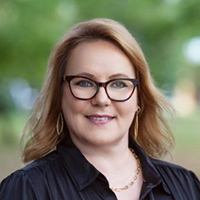 karen taylor
karen taylor
Food and Resource Economics, Faculty of Land and Food Systems
Dr. Taylor is working with Dr. Athena McKown (Forest Conservation Sciences, Faculty of Forestry), Dr. Lindsay Cuff (Applied Biology, Faculty of Land and Food Systems, and Forest Conservation Sciences, Faculty of Forestry), and Dr. Fernanda Tomaselli (Forest Resources Management, Faculty of Forestry) on a project called Sustainability Across First-Year Core Curriculum: The Land One Experience. The goal is to enhance four Land One courses to fully integrate sustainability topics into the program. The aim is to create new content and pedagogical innovations that will be shared among courses including an open online textbook exploring real-world case studies related to sustainability; joint lesson plans using interactive pedagogies to co-teach sustainability topics; assignments and reading lists on sustainability; writing prompts that stimulate interdisciplinary and holistic thinking; and redevelopment of an existing field trip to create a sustainability-focused experiential retreat.
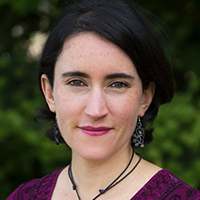 fernanda tomaselli
fernanda tomaselli
Forest Resources Management, Faculty of Forestry
Dr. Tomaselli is working with Karen Taylor (Food and Resource Economics, Faculty of Land and Food Systems), Dr. Athena McKown (Forest Conservation Sciences, Faculty of Forestry), and Dr. Lindsay Cuff (Applied Biology, Faculty of Land and Food Systems, and Forest Conservation Sciences, Faculty of Forestry) on a project called Sustainability Across First-Year Core Curriculum: The Land One Experience. The goal is to enhance four Land One courses to fully integrate sustainability topics into the program. The aim is to create new content and pedagogical innovations that will be shared among courses including an open online textbook exploring real-world case studies related to sustainability; joint lesson plans using interactive pedagogies to co-teach sustainability topics; assignments and reading lists on sustainability; writing prompts that stimulate interdisciplinary and holistic thinking; and redevelopment of an existing field trip to create a sustainability-focused experiential retreat.
PROJECT: APPROACHES TO STEWARDING FORESTED FOODLANDS IN LÍL̓WAT FIRST NATION
 rob vanwynsberghe
rob vanwynsberghe
Educational Studies, Faculty of Education
Dr. VanWynsberghe is working with Dr. Tonya Smith (Forest Resources Management, Faculty of Forestry) on a project called Approaches to Stewarding Forested Foodlands in Líl̓wat First Nation. The goal is to co-create an interdisciplinary summer course in Líl̓wat First Nation on the themes of Indigenous land-based pedagogies, food security and sovereignty, forest stewardship and restoration, Indigenous land rights and ecology. This course aims to provide experiential, place-based learning to prepare scholars for facing complex issues related to creating climate-just futures, as part of responding to the climate emergency.
 tonya smith
tonya smith
Forest Resources Management, Faculty of Forestry
Dr. Smith is working with Dr. Robert VanWynsberghe (Educational Studies, Faculty of Education) on a project called Approaches to Stewarding Forested Foodlands in Líl̓wat First Nation. The goal is to co-create an interdisciplinary summer course in Líl̓wat First Nation on the themes of Indigenous land-based pedagogies, food security and sovereignty, forest stewardship and restoration, Indigenous land rights and ecology. This course aims to provide experiential, place-based learning to prepare scholars for facing complex issues related to creating climate-just futures, as part of responding to the climate emergency.
PROJECT: CAMPUS DETOURS: LAYERED HISTORIES AND INSTITUTIONAL MEMORY AT UBC
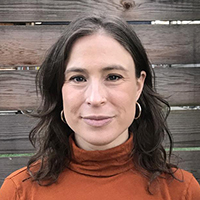 sara jacobs
sara jacobs
School of Architecture and Landscape Architecture, Faculty of Applied Science
Dr. Jacobs is working with Dr. Desiree Valadares (Geography, Faculty of Arts) on a project called Campus Detours: Layered Histories and Institutional Memory at UBC.The goal is to develop a new graduate course in Geography (Faculty of Arts) and Landscape Architecture (SALA/Faculty of Applied Science) focused on the UBC Point Grey campus and University Endowment Lands. Drawing on critical university and critical sustainability studies, the project considers the dual role of the university as an educator and land developer.
 desirée valadares
desirée valadares
Geography, Faculty of Arts
Dr. Valadares is working with Dr. Sara Jacobs (School of Architecture and Landscape Architecture, Faculty of Applied Science) on a project called Campus Detours: Layered Histories and Institutional Memory at UBC. The goal is to develop a new graduate course in Geography (Faculty of Arts) and Landscape Architecture (SALA/Faculty of Applied Science) focused on the UBC Point Grey campus and University Endowment Lands. Drawing on critical university and critical sustainability studies, the project considers the dual role of the university as educator and land developer.
PROJECT: ACCOUNTING FOR CLIMATE CHANGE: EXPANDING CIVIL ENGINEERING, WOOD SCIENCE AND ACCOUNTING COURSES FOR CLIMATE RELEVANCY BY ADDING CASE-BASED CARBON/SUSTAINABILITY ACCOUNTING COURSE MODULES
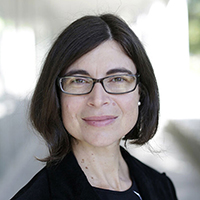 caren lombard
caren lombard
Finance Division, Sauder School of Business
Dr. Lombard is working with Dr. Tamara Etmannski (Civil Engineering, Faculty of Applied Science), and Dr. Qingshi Tu (Wood Science, Faculty of Forestry) on a project called Accounting for Climate Change: Expanding Civil Engineering, Wood Science and Accounting Courses for Climate Relevancy. The goal is to increase carbon/sustainability accounting literacy across commerce and engineering courses as well as in wood science courses, by adding modular content that expands beyond the traditional boundaries of financial accounting to also include concepts of sustainability accounting. Modular content in the form of case studies and interactive experiential learning exercises will cover climate reporting, embodied carbon calculations, life-cycle analysis (LCA) and carbon/GHG accounting (basic and advanced).
 tamara etmannski
tamara etmannski
Civil Engineering, Faculty of Applied Science
Dr. Etmannski is working with Dr. Caren Lombard (Finance Division, Sauder School of Business) and Dr. Qingshi Tu (Wood Science, Faculty of Forestry) on a project called Accounting for Climate Change: Expanding Civil Engineering, Wood Science and Accounting Courses for Climate Relevancy. The goal is to increase carbon/sustainability accounting literacy across commerce and engineering courses as well as in wood science courses, by adding modular content that expands beyond the traditional boundaries of financial accounting to also include concepts of sustainability accounting. Modular content in the form of case studies and interactive experiential learning exercises will cover climate reporting, embodied carbon calculations, life-cycle analysis (LCA) and carbon/GHG accounting (basic and advanced).
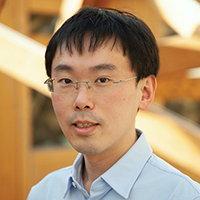 qingshi tu
qingshi tu
Wood Science, Faculty of Forestry
Dr. Tu is working with Dr. Tamara Etmannski (Civil Engineering, Faculty of Applied Science) and Dr. Caren Lombard (Finance Division, Sauder School of Business) on a project called Accounting for Climate Change: Expanding Civil Engineering, Wood Science and Accounting Courses for Climate Relevancy. The goal is to increase carbon/sustainability accounting literacy across commerce and engineering courses as well as in wood science courses, by adding modular content that expands beyond the traditional boundaries of financial accounting to also include concepts of sustainability accounting. Modular content in the form of case studies and interactive experiential learning exercises will cover climate reporting, embodied carbon calculations, life-cycle analysis (LCA) and carbon/GHG accounting (basic and advanced).
Learn more about their project:
PROJECT: ENGINEERING CRITICAL DESIGN PRACTICE: ENGAGING ENGINEERING STUDENTS FOR RADICAL CHANGE
 paul lusina
paul lusina
Electrical and Computer Engineering, Faculty of Applied Science
Dr. Lusina is working with Dr. Christoph Sielmann (Mechanical Engineering, Applied Science) and Dr. Angele Beausoleil, (Marketing & Behavioural Science Division, Sauder School of Business) on a project called Engineering Critical Design Practice: Engaging Engineering Students for Radical Change. The goal is to confront engineering students with the environmental and social implications of their profession. Through the modules that will be developed, students will internalize their ethical responsibilities and be able to incorporate these into every aspect of their engineering design practice. Module themes include Environmental and Social Ecosystems, Ethical Decision-making, Critical Engineering Design and Critical Hope.
 christoph sielmann
christoph sielmann
Mechanical Engineering, Faculty of Applied Science
Dr. Sielmann is working with Dr. Paul Lusina (Electrical and Computer Engineering, Faculty of Applied Science) and Dr. Angele Beausoleil, (Marketing & Behavioural Science Division, Sauder School of Business) on a project called Engineering Critical Design Practice: Engaging Engineering Students for Radical Change. The goal is to confront engineering students with the environmental and social implications of their profession. Through the modules that will be developed, students will internalize their ethical responsibilities and be able to incorporate these into every aspect of their engineering design practice. Module themes include Environmental and Social Ecosystems, Ethical Decision-making, Critical Engineering Design and Critical Hope.
 angele beausoleil
angele beausoleil
Marketing & Behavioural Science Division, Sauder School of Business
Dr. Beausoleil is working with Dr. Christoph Sielmann (Mechanical Engineering, Faculty of Applied Science) and Dr. Paul Lusina (Electrical and Computer Engineering, Faculty of Applied Science) on a project called Engineering Critical Design Practice: Engaging Engineering Students for Radical Change. The goal is to confront engineering students with the environmental and social implications of their profession. Through the modules that will be developed, students will internalize their ethical responsibilities and be able to incorporate these into every aspect of their engineering design practice. Module themes include Environmental and Social Ecosystems, Ethical Decision-making, Critical Engineering Design and Critical Hope.
PROJECT: BUILDING COMMUNITY IN SUSTAINABILITY EDUCATION IN THE FACULTY OF ARTS
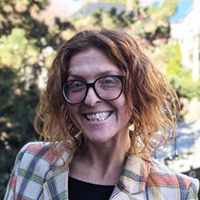 anne stewart
anne stewart
Coordinated Arts Program, Faculty of Arts
Dr. Stewart is working with Dr. David Tindall (Sociology, Faculty of Arts) and Dr. Moberley Luger (English Language and Literatures, and Coordinated Arts Program, Faculty of Arts) on a project called Building Community in Sustainability Education in the Faculty of Arts. The goal is to fill a structural need regarding interdisciplinary sustainability studies in the Faculty of Arts by connecting the Coordinated Arts Program and the Environment and Society Minor, two units in First Year and Interdisciplinary Programs, providing a coherent interdisciplinary pathway that students can follow throughout their BA program.
 david tindall
david tindall
Sociology, Faculty of Arts
Dr. Tindall is working with Dr. Anne Stewart (Coordinated Arts Program, Faculty of Arts) and Dr. Moberley Luger (English Language and Literatures, and Coordinated Arts Program, Faculty of Arts) on a project called Building Community in Sustainability Education in the Faculty of Arts. The goal is to fill a structural need regarding interdisciplinary sustainability studies in the Faculty of Arts by connecting the Coordinated Arts Program and the Environment and Society Minor, two units in First Year and Interdisciplinary Programs, providing a coherent interdisciplinary pathway that students can follow throughout their BA program.
 Moberley Luger
Moberley Luger
English Language and Literatures, and Coordinated Arts Program, Faculty of Arts
Dr. Luger will be working with Dr. David Tindall (Sociology, Faculty of Arts) and Dr. Anne Stewart (Coordinated Arts Program, Faculty of Arts) on a project called Building Community in Sustainability Education in the Faculty of Arts. The goal is to fill a structural need regarding interdisciplinary sustainability studies in the Faculty of Arts by connecting the Coordinated Arts Program and the Environment and Society Minor, two units in First Year and Interdisciplinary Programs, providing a coherent interdisciplinary pathway that students can follow throughout their BA program.
PROJECT: THE SUSTAINABLE CITIES CERTIFICATE - A NEW UNDERGRADUATE ACCREDITATION PROGRAM FOR ASPIRING PRACADEMICS AND URBAN SUSTAINABILITY PROFESSIONALS
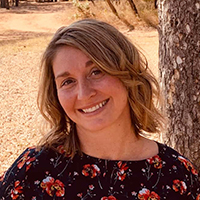 Melissa McHale
Melissa McHale
Forest Resources Management, Faculty of Forestry
Dr. McHale is working with Dr. James Connolly (School of Community and Regional Planning, Faculty of Applied Science) on a project called The Sustainable Cities Certificate - A New Undergraduate Accreditation Program for Aspiring Pracademics and Urban Sustainability Professionals. The goal is to create an undergraduate certificate that helps students from various majors such as engineering, planning, architecture, forestry, and geography to work across disciplines and prepare for careers in fields like urban planning, urban hydrology, city forestry, and transportation engineering. It will focus on core sustainability principles, creating pracademics who apply scientific knowledge to urban solutions.
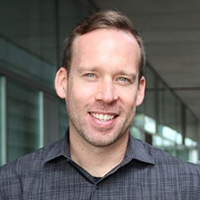 james connolly
james connolly
School of Community and Regional Planning, Faculty of Applied Science
Dr. Connolly is working with Dr. Melissa McHale (Forest Resources Management, Faculty of Forestry) on a project called The Sustainable Cities Certificate - A New Undergraduate Accreditation Program for Aspiring Pracademics and Urban Sustainability Professionals. The goal is to create an undergraduate certificate that helps students from various majors such as engineering, planning, architecture, forestry, and geography to work across disciplines and prepare for careers in fields like urban planning, urban hydrology, city forestry, and transportation engineering. It will focus on core sustainability principles, creating pracademics who apply scientific knowledge to urban solutions.
Learn more about their project: